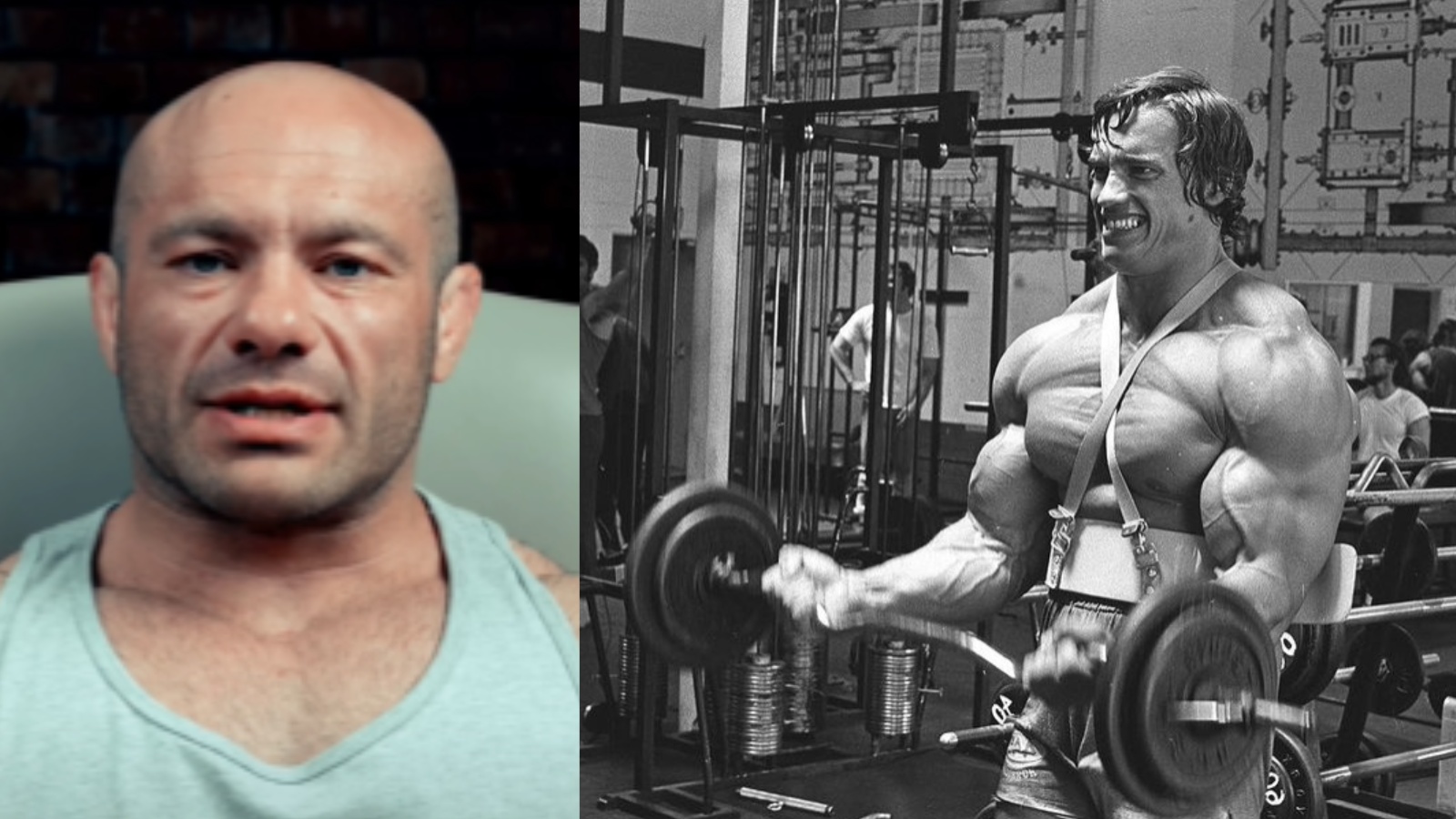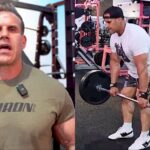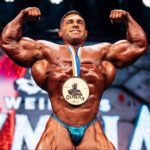Exercise scientist Dr. Mike Israetel is back to clear the air on some misconceptions surrounding exercise. In a recent interview, Israetel outlined his three-tier hypertrophy hierarchy and explained why cheat reps don’t equal better gains.
Having earned his Ph.D. in sports physiology, Dr. Mike Israetel’s science-backed discussions on training and nutrition are second to none. He regularly collaborates with titans of the fitness industry like natural bodybuilder/powerlifter Jeff Nippard, and ‘The Hypertrophy Specialist’ Dr. Brad Schoenfeld. In addition, he has helped countless athletes with training endeavors such as Larry Wheels.
Cheat reps have been used by many bodybuilding greats including former seven-time Mr. Olympia Arnold Schwarzenegger. For as long as weightlifting has been around, many have wondered if a lack of technique in favor of extra reps would drive muscle gain. Now, we have Dr. Mike Israetel to answer that burning question.
Exercise Scientist Reveals His ‘3-Tier Hypertrophy Hierarchy,’ Discusses If Cheat Reps Will Build More Muscle
Israetel begins by outlining his ‘three-tier hierarchy’ of muscle growth.
“Should you let your techniques slip a little bit at the end of a set to get a few more stimulative reps, let’s break this down,” shared Dr. Israetel.
- Technique
- Relative Effort
- Mind Muscle connection
Israetel stands by his three-tiered system for muscle growth supported by proper technique.
“The way I see it, there is a three-tier hierarchy like a proto-pyramid, a ziggurat, or whatever. In hypertrophy training with the base line layer being the most important, the second layer being the second most, and the top layer being the least important but the sort of cherry on top.”
“To me, inside of a single set of hypertrophy training, there is the following three-tier hierarchy. The very bottom-most important bedrock layer is technique because your technique is the plan for how you’re going to execute each rep and because you plan to execute each rep in a certain way ostensibly in reality, that plan should be the most to get out of each rep.”
He adds that technique is the foundation of muscle building whereas ‘relative effort’ is the fuel needed to boost results.
“That’s what good technique is. Look, that’s the foundation. The second most important thing you can attend to in a set is relative effort.
How hard are you pushing? Technique is the guidance trajectory of where you shoot your rocket and relative effort is how much rocket power you boost behind it.”
His third part of the hierarchy is mind-muscle connection, the least important of his three.
“Third, is the mind-muscle connection. Things like how much tension are you feeling, how much pump, how much burn, and it mostly tells you if the technique if the technique you picked in number one, your original technique is spot-on or if it could be better and because as you move in a certain way.”
“This mind-muscle connection and enhancing it grooves my technique into an even better position for more stimulus and less fatigue. In that sense, the mind-muscle connection just reinforces and perfects the technique that you’re doing from rep one, rep two, three, four, etc.”
To answer his original question, Israetel contends that cheat reps will not result in extra muscle growth because lifters sacrifice the most important thing in his hypertrophy hierarchy: quality of technique.
“Why would you let your technique which is your number one priority slip? If you say well it’s to get more reps. Let me get this straight, you’re saying that the trade off of the first priority number one most important thing your technique is worth more of the second priority which is reps in reserve, relative effort, that doesn’t make any sense. Technique is the most important thing.”
Dr. Israetel revealed that studies indicate mind-muscle connection isn’t as crucial for beginner and intermediate lifters.
“It makes sure that every rep is high quality. If you expand the number of reps you’re doing by degrading the quality of the reps, the question could be asked, why don’t you just keep doing high quality reps, there is no good answer to that question by the way.”
“Countless studies have shown that the mind-muscle connection isn’t ultra super important to training, especially for beginners and intermediates, core technique is way more important than if you get a pump, a burn, tension, any of that stuff.”
Additionally, Dr. Israetel emphasizes that a drop-off in technique will result in a less effective stimulus-to-fatigue ratio.
“If your technique slips that means your stimuls-to-fatigue ratio starts to decline which means the correct answer of if in a set your technique starts to slip should you do a couple of more reps with slipped technique, the answer is no.
The answer is pause, myo-reps or drop sets and then continue doing that set.”
From his four-factor model checklist for rest periods to his thoughts on diet soda and weight gain, there isn’t a fitness or nutrition topic that Israetel won’t tackle. He remains dedicated to offering fans easy-to-understand information backed by research and studies.
Based on the stimulus-to-fatigue ratio, exercise scientist Dr. Mike Israetel believes cheat reps will not produce extra muscle. As a solution for those who begin to lose form during a set, he suggests myo-reps, drop sets, or pauses.
RELATED: Exercise Scientist Shares His Top 10 Movements Men Need for Muscle Growth









